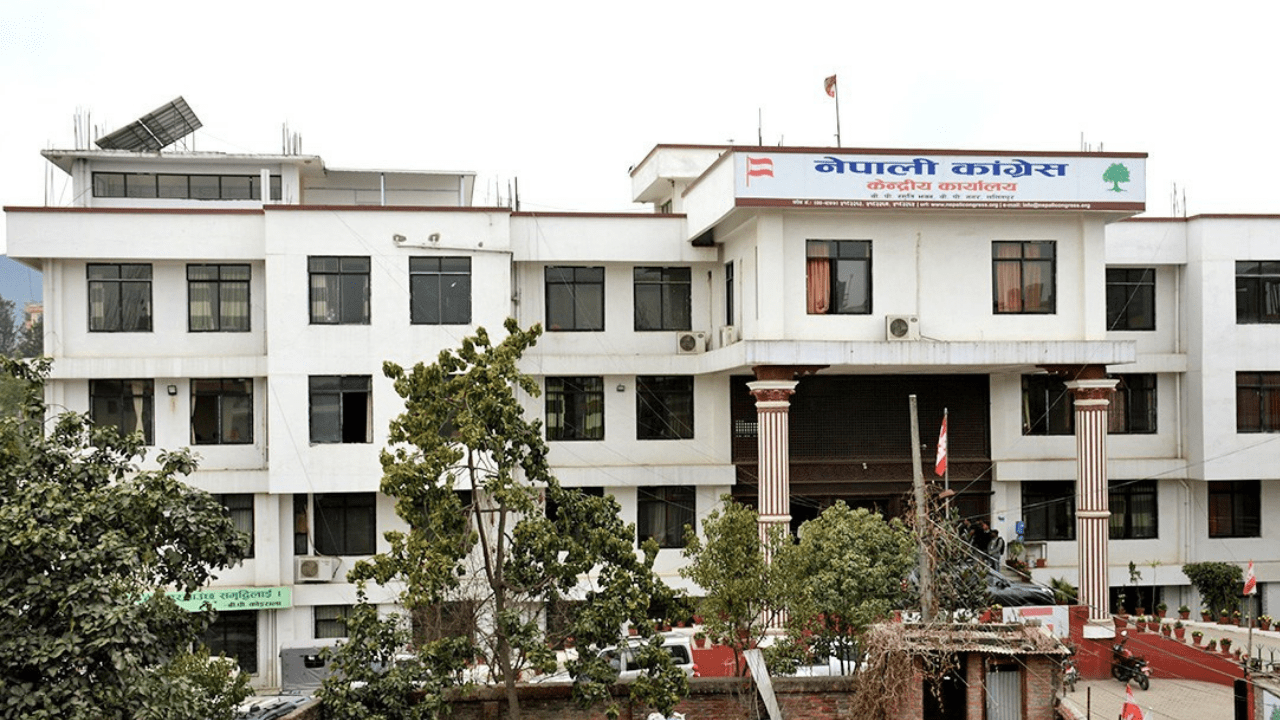0%

Nepali Congress central office, Sanepa/File Photo for Representation
KATHMANDU: Seven leaders of the ruling Nepali Congress (NC) have voiced their concerns regarding the transfer of police officers who had been spearheading the investigation into the fake Bhutanese refugee case.
In a joint statement, these leaders have raised significant doubts about the integrity of the investigative process due to the seemingly arbitrary reassignment of the officers involved in probing corruption-related allegations.
“This move has led to a growing apprehension among the general populace about the credibility of an unbiased inquiry at the civilian level,” a statement issued by them said.
The leaders assert that the government cannot dismiss these civilian-level suspicions.
A cabinet meeting held recently made key changes in police personnel, including the transfer of Chief Additional Inspector General (AIG) Shyamlal Gyawali from Valley Police Office, Ranipokhari, as well as the reassignment of Chief Senior Superintendent of Police (SSP) Manoj KC from Valley Crime Investigation Office.
Additionally, Kathmandu Police Chief SSP Dan Bahadur Karki was also relocated by the Ministry of Home Affairs.
Nepali Congress leaders namely Madhu Acharya, Dr. Govindraj Pokharel, Gururaj Ghimire, Ranjit Karna, Devraj Chalise, Bhupendra Jung Shahi, Bharat Bahadur Khadka, and Subash Lohani, issued a statement expressing their dissatisfaction with these police personnel transfers.
They have concluded that Nepal’s path to reformation is hindered by unchecked corruption.
The statement emphasizes the ongoing investigations into the fabricated Bhutanese refugee case, the Lalita residence land case, and the quintal gold case, asserting the necessity for these inquiries to be conducted with absolute impartiality.
The leaders insist that the government must ensure these investigations reach a logical conclusion.
Furthermore, they have stressed that any form of involvement from political leaders or parties, collusion, or favoritism in corruption cases is unacceptable, underscoring the importance of preserving the integrity of the investigative process.